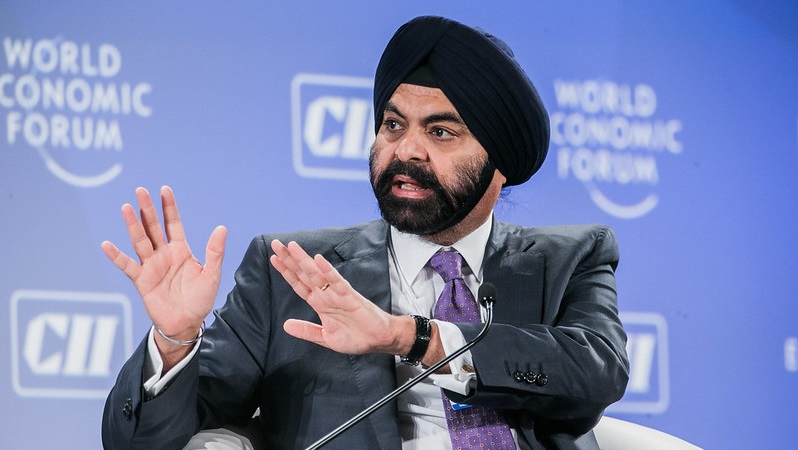The US government has nominated Indian-American businessman Ajay Banga to lead the World Bank, citing his experience in mobilising finance to tackle climate change.
President Joe Biden said the former Mastercard executive “has critical experience mobilising public-private resources to tackle the most urgent challenges of our time, including climate change”.
Banga is currently an advisor to General Atlantic’s climate-focused fund, BeyondNetZero, has sat on the boards of big corporations like Dow Chemicals and has worked with US vice-president Kamala Harris on her Central American policies.
The bank has been led by 13 men and no women. Germany’s world bank governor Svenja Schulze tweeted this week “it is definitely time for a woman to lead the World Bank”.
The World Bank needs to become the frontrunner in fighting poverty and global crises such as #climatechange, #biodiversity loss & #pandemics. And it is definitely time for a woman to lead the World Bank.
— Svenja Schulze (@SvenjaSchulze68) February 22, 2023
The US is the bank’s biggest shareholder and traditionally picks its president so it is likely that Banga will replace David Malpass when he steps down in or before June.
Malpass was a Trump appointee who resigned before the end of his term following criticism of climate sceptic comments he made last year.
The public banks lead for the E3G campaign group Sonia Dunlop welcomed the nomination. She said: “Banga will be a fresh pair of hands at the wheel of what we hope will be a greener, bigger, transformational and reformed World Bank capable of leading a global response to global challenges.”
Climate evolution
The World Bank has become a key focus of efforts to tackle global climate change.
Barbados’s prime minister Mia Mottley first called for its reform to free up spending and tackle climate change, in an initiative labelled the Bridgetown agenda.
That call has been taken up by major bank shareholders like the US, Germany and India. It was endorsed by all governments at Cop27 and has been taken on by the UAE as hosts of Cop28.
Specifically, the bank has proposed lowering the loan to equity ratio of its main lending arm from 20% to 19%, freeing up about $4 billion a year to lend.
Reformers from the governments of Barbados and Germany told Climate Home this week that this was a good start but did not go far enough.
Credit rating
Many governments, including those of Barbados and Germany, say that any loosening of lending rules should not endanger the bank’s AAA credit rating.
This rating, determined by credit rating agencies like Moody’s, allows the bank to borrow money cheap and therefore to lend it cheap.
The government of India will push at the G20 this week for the bank to give cheaper climate finance to developing countries than developed ones.
The bank will host its spring meeting in its home city of Washington DC in April.
World Bank chief to step down early after climate controversy
There it will discuss its ‘evolution roadmap’ with its shareholder governments.
This roadmap aims to broaden the bank’s mission so that it includes tackling climate change, pandemics and other global issues as well as its current twin goals of reducing poverty and boosting prosperity.
The bank proposes to give more money to middle-income countries to reduce greenhouse gas emissions as these emerging economies pollute far more than the world’s poorest countries.
The bank also wants to lend more money to nations which are vulnerable to climate change. Currently, a country’s needs are based just on how poor it is.
To finance this wider mission, the bank’s roadmap calls for more funding from governments.
